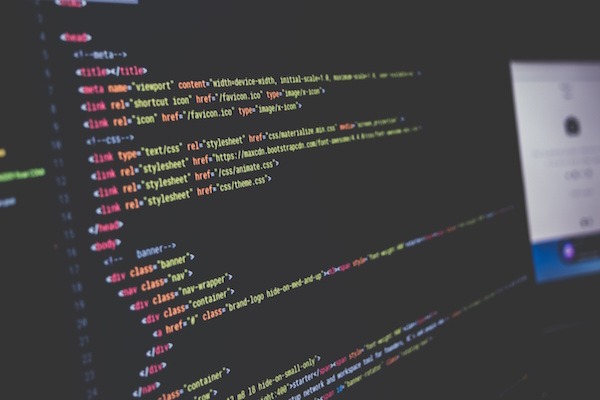When developing technology products, mobile applications, niche social networks, or other online businesses, intellectual property (IP) licensing and ownership issues inevitably arise. Intellectual property licensing and development agreements are integral to product development for startups and technology companies. Strategic software licensing and acquisition can have a profound impact on a technology firm’s IP asset portfolio and bottom line. This blog explores the importance of intellectual property licensing, the common issues faced by tech startups, and how to effectively manage IP licensing agreements.
The Role of Intellectual Property Licensing
Intellectual property licensing is a fundamental aspect of technology development, particularly in the digital age. It allows startups to leverage existing technologies, reduce development costs, and bring products to market more efficiently. Here’s why IP licensing is crucial:
- Accelerating Product Development:
- APIs and Open Source Code: Emerging technology companies often use application programming interfaces (APIs), open-source code, or other pre-developed solutions to accelerate product development. Licensing these technologies can significantly reduce time-to-market and development costs.
- Access to Cutting-Edge Technology: Licensing agreements enable startups to access and integrate cutting-edge technologies and innovations, which might be cost-prohibitive to develop in-house.
- Enhancing IP Asset Portfolio:
- Strategic Acquisitions: Acquiring licenses for valuable IP can enhance a company’s asset portfolio, providing competitive advantages and attracting investment.
- Diversification: Licensing various forms of IP, such as patents, trademarks, and copyrights, diversifies a company’s IP assets and strengthens its market position.
- Boosting Revenue Streams:
- Monetizing IP: Licensing agreements can create additional revenue streams by allowing other companies to use your IP in exchange for fees or royalties.
- Collaborative Opportunities: Partnerships formed through licensing can lead to collaborative opportunities, expanding market reach and enhancing product offerings.
Common IP Licensing Issues for Tech Startups
While IP licensing offers numerous benefits, it also presents several challenges that tech startups must navigate:
- Ownership Clarity:
- Clear Agreements: Ensure that licensing agreements clearly define ownership rights. This prevents disputes over IP ownership and usage rights.
- Employee and Contractor IP Assignments: Secure IP assignments from employees and contractors to ensure that all IP developed for the company is owned by the company.
- Scope of License:
- Define Scope: Clearly define the scope of the license, including the duration, geographical limitations, and specific usage rights. This helps prevent unauthorized use and potential legal issues.
- Exclusive vs. Non-Exclusive: Decide whether the license will be exclusive or non-exclusive. Exclusive licenses grant sole usage rights to the licensee, while non-exclusive licenses allow multiple parties to use the IP.
- Compliance and Enforcement:
- Monitor Compliance: Regularly monitor licensees to ensure they comply with the terms of the agreement. This includes proper usage, payment of fees, and adherence to any restrictions.
- Enforcement Mechanisms: Include enforcement mechanisms in the agreement to address breaches. This can involve penalties, termination clauses, or legal recourse.
Practical Steps to Manage Intellectual Property Licensing Agreements
Effectively managing IP licensing agreements involves strategic planning and legal expertise. Here are some practical steps for tech startups:
- Conduct Thorough Due Diligence:
- Evaluate IP: Assess the value and relevance of the IP being licensed. Ensure it aligns with your business goals and product development plans.
- Legal Review: Have an experienced IP attorney review all licensing agreements to ensure they protect your interests and comply with applicable laws.
- Draft Comprehensive Agreements:
- Detail Terms and Conditions: Clearly outline the terms and conditions of the license, including payment structures, usage rights, and duration.
- Include Confidentiality Clauses: Protect sensitive information by including confidentiality clauses in the agreement.
- Monitor and Enforce Agreements:
- Regular Audits: Conduct regular audits to ensure compliance with the agreement terms. This helps identify and address potential issues early.
- Maintain Documentation: Keep thorough documentation of all licensing agreements and related correspondence. This is crucial for resolving disputes and enforcing rights.
- Seek Expert Legal Assistance:
- Consult an IP Attorney: Work with an IP attorney who understands the complexities of technology and digital products. They can provide tailored advice and help navigate legal challenges.
Example: Intellectual Property Licensing in Practice
To illustrate the importance of IP licensing, consider reading the New York Times on an iPhone. This seemingly simple action involves multiple licenses:
- iOS Operating System: A license from Apple to use the iOS operating system.
- Browser EULA: Agreement to a Google Chrome or Apple Safari browser End User License Agreement (EULA).
- Content Access: A license to access the New York Times content on the mobile device.
- Publishing Platform: Software code owned by the publishing platform used by the New York Times.
- Data Services: Relationship with a data service provider.
Each of these licenses is essential for delivering the user experience, highlighting the intricate web of IP agreements involved in modern technology products.
Seek Expert Legal Assistance
Navigating the complexities of intellectual property licensing and ownership requires expert guidance. David Nima Sharifi, Esq., Principal Attorney at L.A. Tech and Media Law Firm, specializes in intellectual property law and can help you manage your intellectual property licensing agreements effectively.
For a confidential consultation to discuss your intellectual property licensing needs and strategies, contact David Nima Sharifi, Esq. today.
Intellectual property licensing and ownership are critical components of a technology startup’s success. By understanding the intricacies of IP licensing and managing agreements strategically, you can enhance your IP asset portfolio and boost your company’s bottom line. For expert legal advice and assistance, reach out to David Nima Sharifi, Esq. at L.A. Tech and Media Law Firm.
When developing technology products, mobile applications, niche social networks, or other business online, intellectual property licensing and ownership issues will inevitably arise. Intellectual property licensing and development agreements are integral to product development for startups and technology companies, and strategic software licensing and acquisition can have a profound impact on a technology firm’s intellectual property asset portfolio, and company bottom line.
Intellectual property licensing of software technology is rampant on the internet and in mobile applications. Emerging technology companies developing hardware products, websites, mobile applications, databases, algorithms, software, and other digital goods and services will no doubt license some of the materials in their products using application programming interfaces (APIs), open source code, or other free or inexpensive pre-developed solutions designed to reduce development costs.

Intellectual property licensing is essential in technology, innovation and digital publishing, allowing developers of different types of code, hardware, content and services to work together to create the user experience on any website or mobile application. For example, reading the New York Times on an iPhone requires licenses to Apple Computer’s iOS operating system, agreement to a Google Chrome or Apple Safari browser End User License Agreement (EULA), a license to access the New York Times content on the mobile device, which technically requires some form of copying of the content on the local memory of the phone, and utility of software code owned by the publishing platform NYT uses to operate its website, as well as some kind of relationship with a data service provider.
The 1976 US Copyright Act governs and protects original works of authorship such as literary, dramatic and musical works, images, graphics, and audiovisual materials, computer software, and sound recordings. Under the Act the owner of a copyright is vested with certain exclusive rights to:
- reproduce the work in copies or phonorecords
- prepare derivative works based upon the work
- distribute copies or phonorecords of the work to the public by sale or other
- transfer of ownership, or by rental, license, or lending
- perform the work publicly, in the case of literary, musical, dramatic, and choreographic works, pantomimes, and motion pictures and other audiovisual works
- display the work publicly, in the case of literary, musical, dramatic, and choreographic works, pantomimes, and pictorial, graphic, or sculptural works, including the individual images of a motion picture or other audio visual work
- perform the work publicly (in the case of sound recordings) by means of a digital audio transmission
1976 US Copyright Act, Title 17 USC, Sec. 106
While there is a perceived challenge as to protection of products built using other people’s intellectual property, and legal review of each software license is essential, courts have ruled in favor of protection of the unique selection, arrangement, and coordination of otherwise un-copyrightable subject matter in copyright infringement cases. Consultation with an experienced emerging technology attorney and copyright law expert can assist CEOs, entrepreneurs and product development teams to craft sophisticated technology licensing and product development agreements with corresponding intellectual property protection strategies that identify solid competitive barriers, and intelligent legal leverage of existing digital infrastructure.

Disclaimer: The content above is a discussion of legal issues and general information; it does not constitute legal advice and should not be used as such without seeking professional legal counsel. Reading the content above does not create an attorney-client relationship. All trademarks are the property of L.A. Tech & Media Law Firm or their respective owners. Copyright 2024. All rights reserved.


